Most Prolific English Music Classical Composers
English classical music is the heritage of European countries. The term “Classical Music” became in vogue in 19th century. The english classical composers are distinguished from other classical composers in the world because of their system of staff notation which is in use since 16th century. The list of famous top ten english classical composers is shown here.
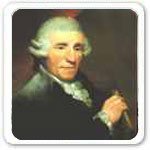 Franz Joseph Haydn (March 31, 1732 – May 31, 1809) was one of the most famous composers of the classical period, and is called by some the “Father of the Symphony” and “Father of the String Quartet”. Isolated from other composers and trends in music until the later part of his long life, he was, as he put it, “forced to become original”. Joseph Haydn was the brother of Michael Haydn, himself a highly regarded composer. Franz Joseph Haydn (March 31, 1732 – May 31, 1809) was one of the most famous composers of the classical period, and is called by some the “Father of the Symphony” and “Father of the String Quartet”. Isolated from other composers and trends in music until the later part of his long life, he was, as he put it, “forced to become original”. Joseph Haydn was the brother of Michael Haydn, himself a highly regarded composer. |
|
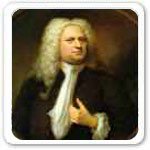 George Frideric Handel (Friday, 23 February 1685 – Saturday, 14 April 1759) was a German-born Baroque composer who is famous for his operas, oratorios and concerti grossi. His most famous works are Messiah, an oratorio set to texts from the King James Bible; Water Music; and Music for the Royal Fireworks. Strongly influenced by the techniques of the great composers of the Italian Baroque and the English composer Henry Purcell. George Frideric Handel (Friday, 23 February 1685 – Saturday, 14 April 1759) was a German-born Baroque composer who is famous for his operas, oratorios and concerti grossi. His most famous works are Messiah, an oratorio set to texts from the King James Bible; Water Music; and Music for the Royal Fireworks. Strongly influenced by the techniques of the great composers of the Italian Baroque and the English composer Henry Purcell. |
|
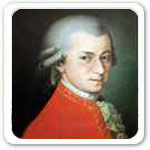 Wolfgang Amadeus (27 January 1756 – 5 December 1791) was a prolific and influential composer of the Classical era. His 600 compositions include works widely acknowledged as pinnacles of symphonic, concertante, chamber, piano, operatic, and choral music. Mozart is among the most enduringly popular of classical composers, and many of his works are part of the standard concert repertoire. Wolfgang Amadeus (27 January 1756 – 5 December 1791) was a prolific and influential composer of the Classical era. His 600 compositions include works widely acknowledged as pinnacles of symphonic, concertante, chamber, piano, operatic, and choral music. Mozart is among the most enduringly popular of classical composers, and many of his works are part of the standard concert repertoire. |
|
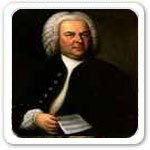 Johann Sebastian Bach (March 21, 1685 O.S. – July 28, 1750 N.S.) was a German composer and organist whose sacred and secular works for choir, orchestra, and solo instruments. A revival of interest and performances of his music began early in the 19th century, and he is now widely considered to be one of the greatest composers in the Western tradition. Johann Sebastian Bach (March 21, 1685 O.S. – July 28, 1750 N.S.) was a German composer and organist whose sacred and secular works for choir, orchestra, and solo instruments. A revival of interest and performances of his music began early in the 19th century, and he is now widely considered to be one of the greatest composers in the Western tradition. |
|
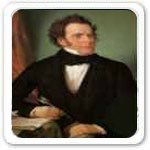 Franz Peter Schubert (January 31, 1797 – November 19, 1828) was an Austrian composer. He wrote some 600 lieder, nine symphonies, liturgical music, operas, and a large body of chamber and solo piano music. He is particularly noted for his original melodic and harmonic writing. His music during his lifetime was limited at best. and for most of his career he relied on the support of friends and family. Interest in Schubert’s work increased dramatically in the decades following his death. Franz Peter Schubert (January 31, 1797 – November 19, 1828) was an Austrian composer. He wrote some 600 lieder, nine symphonies, liturgical music, operas, and a large body of chamber and solo piano music. He is particularly noted for his original melodic and harmonic writing. His music during his lifetime was limited at best. and for most of his career he relied on the support of friends and family. Interest in Schubert’s work increased dramatically in the decades following his death. |
|
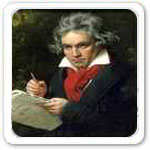 Ludwig van Beethoven, December 16, 1770 – March 26, 1827) was a German composer and virtuoso pianist. He was a crucial figure in the transitional period between the Classical and Romantic eras in Western classical music, and remains one of the most respected and influential composers of all time. Beethoven’s hearing gradually deteriorated beginning in his twenties, yet he continued to compose masterpieces, and to conduct and perform, even after he was completely deaf. Ludwig van Beethoven, December 16, 1770 – March 26, 1827) was a German composer and virtuoso pianist. He was a crucial figure in the transitional period between the Classical and Romantic eras in Western classical music, and remains one of the most respected and influential composers of all time. Beethoven’s hearing gradually deteriorated beginning in his twenties, yet he continued to compose masterpieces, and to conduct and perform, even after he was completely deaf. |
|
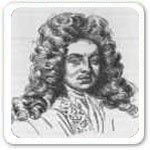 Henry Purcell September 10, 1659 – November 21, 1695, was an English Baroque composer. He has often been called England’s finest native composer. Purcell incorporated Italian and French stylistic elements but devised a peculiarly English style of Baroque music, and he is the one of the most prolific composer. Henry Purcell September 10, 1659 – November 21, 1695, was an English Baroque composer. He has often been called England’s finest native composer. Purcell incorporated Italian and French stylistic elements but devised a peculiarly English style of Baroque music, and he is the one of the most prolific composer. |
|
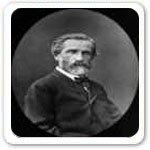 Giuseppe Fortunino Francesco Verdi (October 9 or 10, 1813 –January 27, 1901) was an Italian Romantic composer, mainly of opera. He was one of the most influential composers of Italian opera in the 19th century. His works are frequently performed in opera houses throughout the world. Although his work was sometimes criticized for using a generally diatonic rather than a chromatic musical idiom, Verdi’s masterworks dominate the standard repertoire a century and a half after their composition. Giuseppe Fortunino Francesco Verdi (October 9 or 10, 1813 –January 27, 1901) was an Italian Romantic composer, mainly of opera. He was one of the most influential composers of Italian opera in the 19th century. His works are frequently performed in opera houses throughout the world. Although his work was sometimes criticized for using a generally diatonic rather than a chromatic musical idiom, Verdi’s masterworks dominate the standard repertoire a century and a half after their composition. |
|
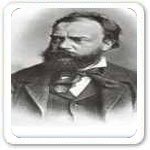 Antonin Leopold Dvorak, (often pronounced in English as September 8, 1841 – May 1, 1904) was a Czech composer of Romantic music, who employed the idioms and melodies of the folk music of his native Bohemia and Moravia. His works include operas, symphonic, choral and chamber music. Antonin was the one of the best prolific composer. Antonin Leopold Dvorak, (often pronounced in English as September 8, 1841 – May 1, 1904) was a Czech composer of Romantic music, who employed the idioms and melodies of the folk music of his native Bohemia and Moravia. His works include operas, symphonic, choral and chamber music. Antonin was the one of the best prolific composer. |
|
 Franz Liszt (October 22, 1811 – July 31, 1886) was a Hungarian composer and virtuoso pianist of the 19th century. He was a renowned performer throughout Europe, noted especially for his showmanship and great skill with the piano. As a composer, Liszt was one of the most prominent representatives of the “Neudeutsche Schule” (“New German School”). He left behind a huge oeuvre, including works from nearly all musical genres. Franz Liszt (October 22, 1811 – July 31, 1886) was a Hungarian composer and virtuoso pianist of the 19th century. He was a renowned performer throughout Europe, noted especially for his showmanship and great skill with the piano. As a composer, Liszt was one of the most prominent representatives of the “Neudeutsche Schule” (“New German School”). He left behind a huge oeuvre, including works from nearly all musical genres. |


